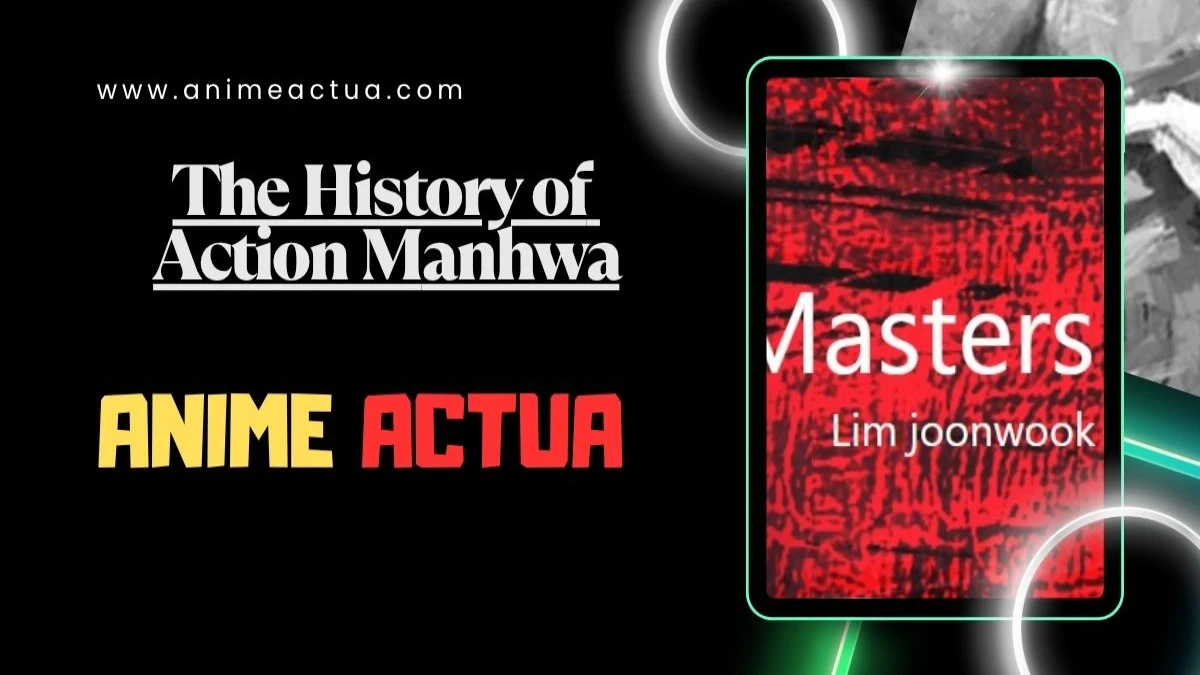The History of Action Manhwa
From Origins to Modern Masterpieces
Introduction to The History of Action Manhwa
Action manhwa, the Korean counterpart to Japanese manga and Western comics, has become a global phenomenon, captivating readers with high-octane battles, dynamic storytelling, and striking artwork. But the genre didn’t appear overnight. Its history is rooted in Korea’s cultural evolution, political shifts, and the global explosion of digital content. This article traces the journey of action manhwa—from its humble beginnings to its modern-day masterpieces.
1. The Birth of Action Manhwa in Korea
Post-War Beginnings (1940s–1960s) in Action Manhwa
The term manhwa (만화) originally referred to cartoons and comic strips, with its etymology tracing back to the Chinese word manhua. In the aftermath of the Korean War (1950–1953), Korea faced massive political and social reconstruction. Comics became an accessible form of entertainment, especially for children.
Early manhwa was often used for educational or propaganda purposes, with action elements included to attract young readers. These early works were typically black-and-white, cheaply printed, and inspired by both Japanese manga and Western superhero comics. The foundations of action manhwa were laid during this period.
2. The Rise of Genre Manhwa and Underground Circulation (1970s–1980s)
Underground and Censorship in The History of Action Manhwa
During the 1970s and ’80s, government censorship heavily influenced Korean media. As a result, manhwa creators often had to navigate around strict content restrictions. Despite this, underground and rental comic shops (manhwabang) flourished. Readers would rent books for a low price, making manhwa widely accessible.
This era saw the birth of genre manhwa—especially action, fantasy, and martial arts. Creators like Kim Jin (*Blade of the Phantom Master*) and Huh Young-man (*Tajja, Beat*) began to establish the foundations of the action genre, combining traditional Korean themes with fast-paced storytelling. The development of action manhwa gained momentum here.
3. The Golden Era of Action Manhwa and Globalization (1990s–2000s)
Martial Arts and Urban Legends in The History of Action Manhwa
The 1990s are often considered the golden age of action manhwa. Titles such as:
- *The Breaker* by Jeon Geuk-jin and Park Jin-hwan
- *Ragnarok* by Lee Myung-jin
- *NOW* by Park Sung-woo
explored a range of themes including martial arts, school fights, and supernatural powers. These action manhwa stories gained international traction, particularly through translations and fan scans, which helped spread manhwa to Western audiences.
Webtoons: A Digital Revolution for Action Manhwa
In the early 2000s, with the rise of internet culture, Korean platforms like Daum and Naver began hosting webtoons—digital comics optimized for mobile reading. This allowed creators more freedom, bypassing traditional publishers and reaching a wider audience instantly, significantly boosting action manhwa’s reach.
4. The Webtoon Boom and Global Appeal of Action Manhwa (2010s–Present)
The Birth of Modern Action Manhwa Masterpieces
With smartphones becoming ubiquitous, action manhwa—especially in webtoon form—exploded in popularity. The vertical scroll format allowed for dynamic fight scenes and innovative paneling, perfect for action-oriented narratives.
Some of the most iconic modern action manhwa include:
- *Tower of God* by SIU
- *Solo Leveling* by Chugong & Dubu
- *God of High School* by Yongje Park
- *Noblesse* by Son Jeho & Lee Kwangsu
- *Omniscient Reader’s Viewpoint* by Sing Shong
These action manhwa series boast massive international fanbases and have inspired anime adaptations, novels, and even merchandise lines.
Adaptations and Mainstream Success of Action Manhwa
Action manhwa has transcended digital borders. Titles like *Solo Leveling* and *Tower of God* were adapted into successful anime series, further cementing manhwa’s place in global pop culture. Major publishers like Webtoon Entertainment and Tapas Media have also partnered with Western studios, bringing Korean content to Netflix, Crunchyroll, and beyond.
5. Characteristics of Action Manhwa
Unique Visual Style of Action Manhwa
While initially influenced by Japanese manga, manhwa developed its own visual identity, particularly prominent in action manhwa:
- Full-color artwork (especially in webtoons)
- Realistic anatomy and character design
- Use of digital effects for dynamic action sequences
Themes and Tropes in Action Manhwa
Action manhwa often explores:
- Revenge and redemption
- Martial arts and school-based fights
- Supernatural beings and apocalyptic worlds
- Power scaling and “leveling up”
Many action manhwa also incorporate elements from Korean culture and mythology, giving them a distinct flavor.
6. The Future of Action Manhwa
The global success of action manhwa shows no signs of slowing. With increasing investment from international studios and tech companies, manhwa is now a pillar of the global comic industry. More creators from diverse backgrounds are joining the field, and multilingual releases are becoming standard.
As AR/VR and AI tools develop, it’s likely that the next generation of action manhwa will push the boundaries of visual storytelling even further.
Action Manhwa Trends & Popularity
This chart illustrates the perceived popularity of different eras in action manhwa history, reflecting their impact on the global stage.
This chart shows the approximate distribution of popular subgenres within modern action manhwa, based on current trends.
Quick Quiz: Test Your Action Manhwa Knowledge!
1. What is the Korean term for comics, equivalent to Japanese manga?
2. Which digital format revolutionized manhwa reading on mobile devices?
Poll: Which Era of Action Manhwa is Most Interesting?
Poll: What’s Your Favorite Action Manhwa Subgenre?
Further Reading: Explore More Action Manhwa!
If you’re looking to dive deeper into the world of action manhwa, check out our curated list of top titles:
- Top 10 Action Manhwa You Must Read – Your ultimate guide to the best action manhwa available!
Information Sources for The History of Action Manhwa
The information presented in this article is compiled from a variety of reputable sources, including:
- **Academic Research and Publications:** Studies on Korean comics, media history, and digital content trends, including works found on academic databases and university presses.
- **Industry Reports and Market Analyses:** Data from major webtoon platforms and comic industry associations, such as reports from the Korea Creative Content Agency (KOCCA) and market research firms specializing in digital entertainment.
- **Interviews with Creators and Experts:** Insights from artists, writers, and scholars in the manhwa field, often published in specialized magazines, online forums, or documentaries.
- **Fan Communities and Databases:** Extensive information and historical data aggregated by dedicated fan wikis and communities, such as Namuwiki (Korean Manhwa section) and various fan-curated databases.
- **Historical Archives:** Records and publications from early manhwa periods, including digitized collections from national libraries and comic archives.


